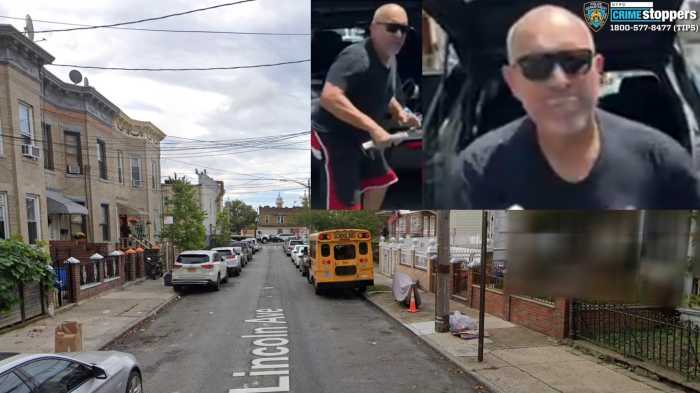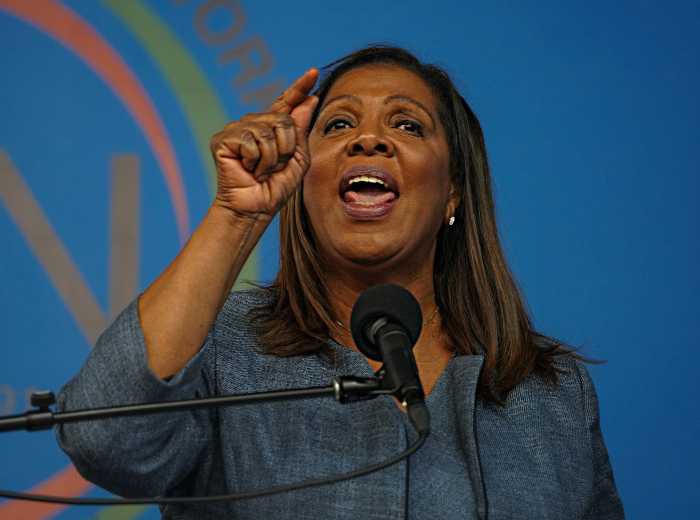
BY GERALD BUSBY | Gender is a cultural phenomenon, intrinsically subjective, and has no being except as performance: This is the presupposition of Brad Calcaterra’s acting workshop, ACTOUT, at the LGBT Center on W. 13th St. On a recent Monday, I visited the class and witnessed transgender men and women, straight and gay, come face to face with the amorphousness of their existence. It was exhilarating to see them, in a process of many exercises lasting several hours, free themselves from who they thought they were by realizing it was all their own creation.
With the sensibility of a watercolorist and the precise instincts of a person totally present, Brad quietly and unwaveringly guided his actors through a process of letting go of fear. He had everyone in turn improvise a dance to the thump-thump-thump-thump of pop music as he gently, almost imperceptibly, pulled the rug of familiarity out from under them. He periodically called out over the music — “again with butter… add syrup.” The dancers responded, without shame, through their fear and generated a momentum that both energized them as individuals and connected them intimately with each other. It was mesmerizing.
As owner and creative director of THE STUDIO in New York City (thestudioact.com), Brad’s career as acting coach, actor, director, and producer is expansive. Besides guiding aspiring actors through the maze of self-discovery in his acting workshops, Brad advises them on the practical aspects of their careers. What he does is wake them up to their own power, especially those who are transgender and feel themselves adrift because of it.
Sitting in that dark room during a session of ACTOUT, I was reminded of my experience in Erhard Seminars Training, or est, back in the ’70s. The goal of that forum was to experience oneself without ego. When that happened you “got it.” It was a kind of boot camp training for enlightenment. Unlike Brad’s process, est relied entirely on words spoken by the seminar leader to a seated audience waiting to be enlightened. There were magical moments when someone got it, and words became irrelevant. In ACTOUT, there was the electricity of actualization in the room. Brad’s words tickled and poked more than they explained.

I heard about Brad through Nicholas Gorham, a transgender actor who was enrolled in three of Brad’s acting workshops. Nicholas and I were already friends. In 2013, I set three of his poems to music: “The Mutes,” “At Night,” and “I’m an artist” (I’m an artist! / I think / I do what I can / I’m an artist, I think / But don’t know where I am).
When I use “he” and “his” to refer to Nicholas, I mean to differentiate between the content of his being — his male genitalia — and the context of his being — the gender he chooses to express himself. This is a point not easily taken by transgender people who, in their search for identity, wrestle with pronouns.
Nicholas and I had lengthy conversations about his history as a beautiful boy whose birth mother had given him up for adoption, and about his submersion into female appurtenances. At 12, he created costumes that fit perfectly, and he could apply makeup with skill and taste. I remember feeling uneasy when he told me about going back home to Vancouver and hanging with his gay buddies, who called each other by intentionally self-denigrating names and catch phrases they had used when they were teenagers. It seemed to me that Nicholas was succumbing to the tyranny of demeaning words for the sake of identification. He seemed to be a prisoner of nomenclature.

“I really wasn’t exploring gender until later on, when I started performing in the Downtown scene,” he said. Nicholas responded when I asked how he began expressing himself visually as a young gay male. His words reminded me that consciousness itself, outlined by perception, is the basis for gender identity. “I really started without adhering to gender expectations, but it wasn’t until a couple years later that I realized how I’d compartmentalized my female energy into just performance time.” Nicholas is attributing to energy itself the impulses to express himself dramatically with costumes and makeup. “That’s when I started imagining the female expression into the rest of my life,” he recalled.
Nicholas’ imagination and theatrical talents gave him confidence to acknowledge himself as female, whereas before his authenticity for “being a girl” came from his reactions to negative comments by other people. His female side was both natural and his own creation, and he perceived it as energy more than a specific identity. “I was always dressing creatively, since I can remember, but my authentic gender expression didn’t start living until much later,” he noted.
Watching Nicholas perform in videos shot during Brad’s SCENE and be SEEN workshop, I became aware of his need to empty himself of the bitterness and resentment toward everyone who had ever dismissed him as a fanciful faggot. “The Dark Matter Church of Christ:Mass,” a Christmas show Nicholas wrote, directed, and starred in at The Wild Project in the East Village, revealed to me his dramatic range. In the opening scene, Nicholas sat elevated on a block in the center of the stage with his back to the audience. He was dressed in dark flowing robes that seemed to expand mysteriously as he slowly extended his arms. It was vivid and powerful, and it had nothing to do with gender.
Nicholas is a versatile performer. Gender, in all its dimensions, defines and enhances his presence in the world. Bravi, Nicholas!




































